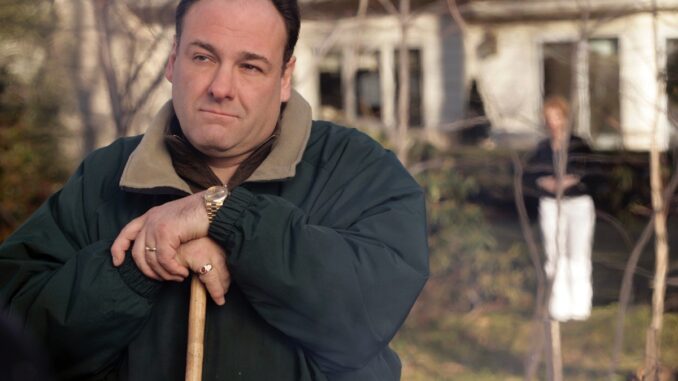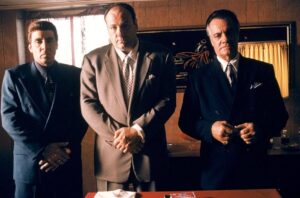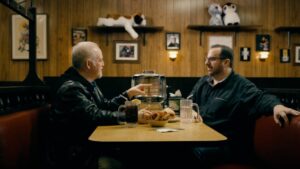
When The Sopranos debuted 20 years ago, Alan Sepinwall was working for the Star-Ledger in Newark, N.J. — the same newspaper protagonist Tony Soprano would pick up from his driveway every morning.
David Chase’s iconic HBO drama about the complicated life of a New Jersey mobster and his family first hit the airwaves on Jan. 10, 1999.
“We were the hometown paper, so even if the show had been terrible, we would have had to cover it exhaustively,” Sepinwall, TV critic and co-author of the The Soprano Sessions, told As It Happens host Carol Off.
“Instead, it would end up not only being the hometown show, but one of the greatest shows ever made.”
While ostensibly an American crime thriller, Sepinwall says it was about so much more — family tensions, a man being forced to examine his feelings and the decrepitude in America.
“It’s really about a reckoning moment for the American experiment, for sort of civilization as a whole,” he said.
“Just where have we come? How have we become these people capable of doing a lot of the things that Tony does? And, if anything, a lot of things have slid much further downhill since he was, you know, complaining about whatever happened to Gary Cooper.”
Characters had ‘so much depth’: Steve Van Zandt
Despite those enormous and complex themes, the real key to the show’s success was that it nailed the fundamentals, says Steve Van Zandt, who played Tony’s right-hand man and confidante Silvio Dante.
“That’s what it comes down to — really good writing and the incredible ability of David Chase to create these characters that have so much depth and are so distinctive,” Zandt told Off.
“You have 12 or 15 regular characters, every one of which you could spend the entire hour with and probably have a good time and be very entertained.”

His own character Sil was no exception
“Even though he’s one of the more evolved characters in the sense of being a bit more of a diplomat for the family and a bit more open-minded … he still was in a very black and white world,” Zandt said.
“It’s right and wrong. The rules are very rigid. And I kind of envy that kind of clarity, to be honest.”
Breaking all the rules

Silvio may have been a stickler for the rules, but Chase definitely wasn’t.
While grisly serialized dramas about people who do horrible things may seem par for the course these days, there was nothing else on TV like it at the time, says Sepinwall.
“It broke all of these rules that the television business had officially held for decades — saying you can’t have an unlikable character, you can’t have moral complexity, you can’t have narrative complexity, you’ve got to dumb everything down, you’ve got to make it simple, you can’t have stories continue from one episode to the next,” he said.
“All of these things we take for granted in 2019 when we pick our favourite shows and we’re going to binge something, you know, those are there because of Tony Soprano.”
That’s why 20 years later, The Sopranos remains “the single most influential TV show, at least scripted, since I Love Lucy,” he said.
“TV comedy as we know it does not exist without Lucy. TV drama in the 21st century does not exist as it does without The Sopranos.”
Unexpected foray into acting
Zandt says even his inclusion in the series was unconventional. The Sopranos was The E Street Band guitarist’s first foray into acting.
“[Chase] broke every rule in the book, and I think part of breaking those rules was choosing me to be in the show, you know, a non-actor,” he said.
“I think he was taking things as far as he could outside the box.”
Sepinwall says Zandt’s performance was one of the best things about the show.
“He would do these line readings as Silvio, the consigliere of the family, and on the page it’s not a joke — and when he would say it, it would be brilliant.”
